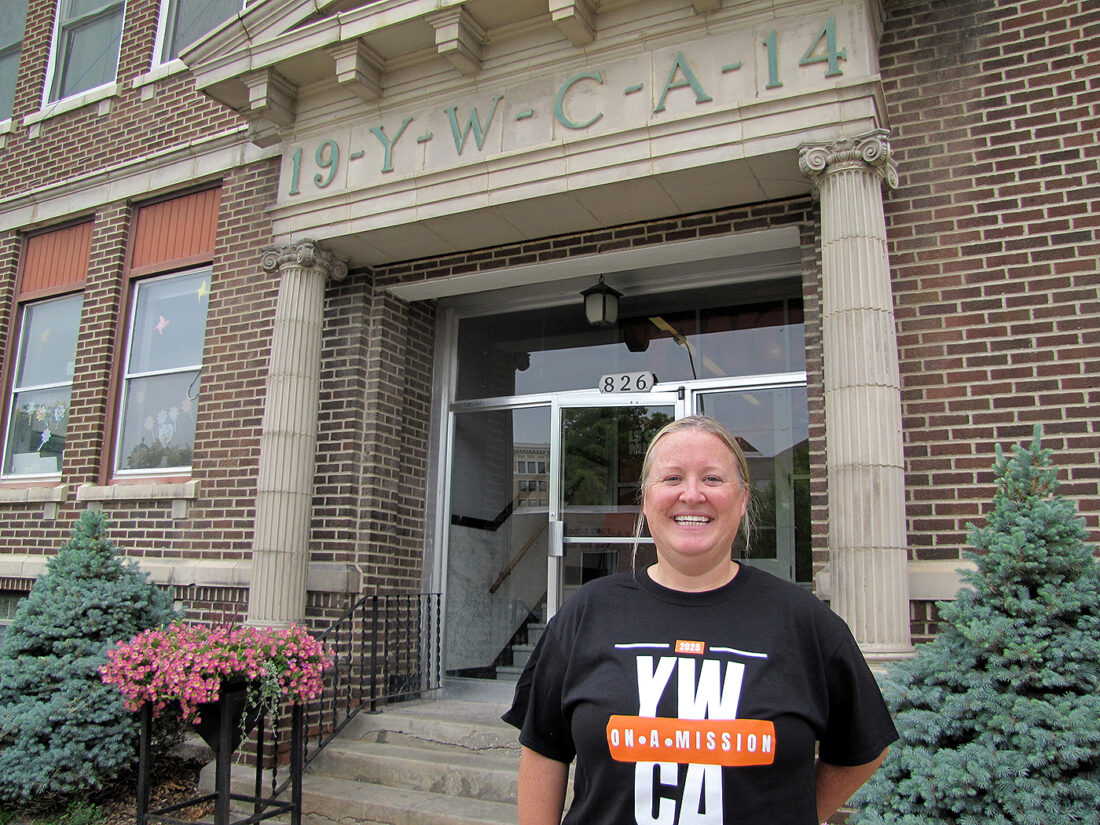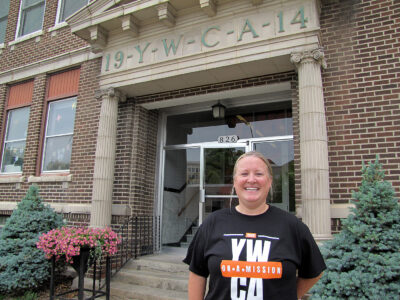Seeing hope where others don’t
Nici George makes a difference for women in recovery at YWCA in Fort Dodge
-
-Messenger photo by Lori Berglund
Nici George, executive director of the Fort Dodge YWCA, sees hope for all the clients served in the substance use programs through the YWCA.

-Messenger photo by Lori Berglund
Nici George, executive director of the Fort Dodge YWCA, sees hope for all the clients served in the substance use programs through the YWCA.
Editor’s note: This feature first ran in a special publication called Hometown Pride, published June 28, 2025, featuring people and organizations from Fort Dodge and the surrounding area who are making a difference in their communities.
Nici George sees hope where others see the train wreck of substance use. Fortunately, she doesn’t give up easily.
“I see people can change, and I have hope,” said George, executive director of the Fort Dodge YWCA.
This isn’t just an ordinary Y. The Center for Life Empowerment at the Fort Dodge YWCA works to give women who suffer from the disease of substance use a chance in this world.
A Clare native, George is a 2003 graduate of St. Edmond Catholic School in Fort Dodge. She completed an associate’s degree at Iowa Central Community College before earning her bachelor’s degree in child, adult and family services from Iowa State University in Ames.
George began her career at Children and Families of Iowa in Fort Dodge. She eventually gained certification in counseling and became a counselor at the YWCA in 2012. She later moved to Missouri, where she counseled adolescents facing substance use challenges.
George returned to Fort Dodge in 2018 as clinical director at the YWCA. She was named executive director in 2021. Whatever the position, her work has always been about helping people.
Helping women recover from substance use is not an easy road, but George knows what’s on the line. Substance use is all too often a fatal disease that, left untreated, can lead to death, not just by overdose, but from cancer, liver disease, and a multitude of other causes.
George knows she won’t win every battle, but she still fights them, just the same.
“Not everybody is successful when they come into treatment,” she said.
But when just one person wins the battle and gets a new chance at life, it is all worthwhile.
On any given day, about 25 women and 10 to 12 children will be living at the YWCA building on First Avenue North.
“We are one of seven programs in Iowa that allow children to reside with their parents when they enter the recovery process from substance use,” George said.
Keeping moms and children together is not always possible, but when it can work, it often helps the mom in her recovery, according to George.
“We have found that moms are more successful in their recovery journey when they are able to maintain a relationship with their children,” she said.
Moms and their kids live together at the YWCA. Onsite child care is provided, because the moms stay very busy in treatment programs.
“Mom is required to be in programming for 50 hours every week, so it’s a lot,” George said.
And just like other moms who work 40 or more hours every week, moms in recovery are still responsible for their own kids.
“The moms feed their kids lunch, feed them dinner. They bathe them at night, so they are still in charge of their daily activities,” George said.
Taking responsibility becomes part of the treatment. As women progress through the program, they may have fewer hours of programming each week, but they will then be required to either find an outside job or volunteer position.
“We actually have multiple levels of care,” George said. “The first 30-ish days, they are pretty much restricted to the building. They don’t leave other than for appointments. After they have completed certain expectations, they move on to what we call a halfway house level, and that’s when they have to get a job.”
Even at that stage, they are still living at the YWCA, which provides structure during the recovery process. Just as a cancer patient needs time for treatment, patients in substance use need time for their treatment.
“We are at a minimum a 90-day program,” George said. “We encourage longer because you didn’t get sick in 90 days, so we encourage a longer stay for treatment.”
Many of the women who come to the YWCA for help have little to nothing when they arrive.
“A large population of our women come from hospitals, jails, or are homeless, and they do not have adequate clothing, so we accept donations,” George said.
“I really see that people can change, and not everyone sees that,” she said. “We have such a great program here. I would not be able to do it without the staff here. They are amazing. Twenty-four-hour programs are not easy, and I just have to give all the credit to the staff at the Y and our board of directors. They really give me the ability to do what I am able to do.”



